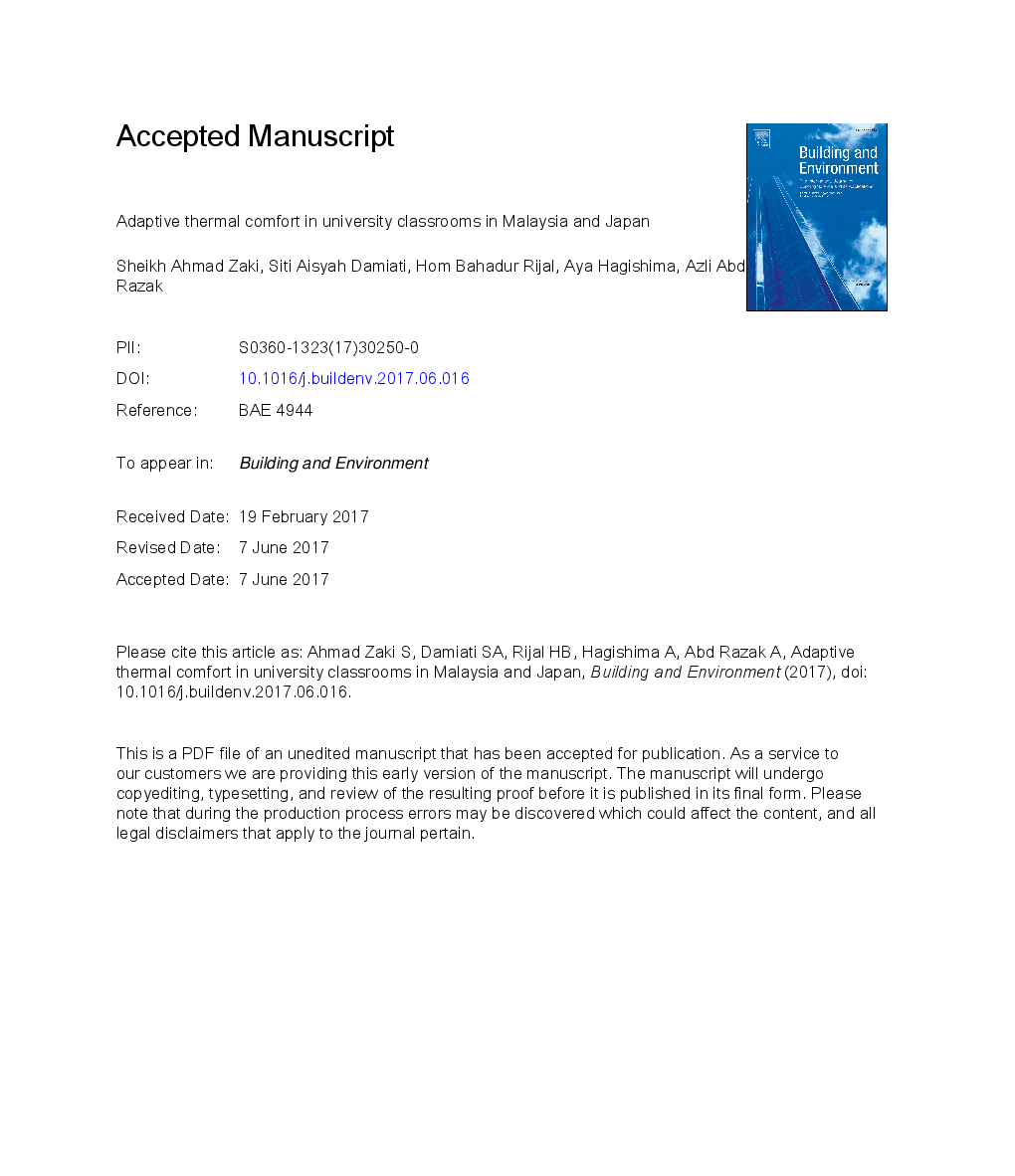ترجمه فارسی عنوان مقاله
راحتی حرارتی در کلاس های دانشگاه در مالزی و ژاپن
عنوان انگلیسی
Adaptive thermal comfort in university classrooms in Malaysia and Japan
| کد مقاله | سال انتشار | تعداد صفحات مقاله انگلیسی |
|---|---|---|
| 143953 | 2017 | 18 صفحه PDF |
منبع

Publisher : Elsevier - Science Direct (الزویر - ساینس دایرکت)
Journal : Building and Environment, Volume 122, September 2017, Pages 294-306
ترجمه کلمات کلیدی
راحتی حرارتی، کلاس های درس، تهویه مطبوع، رایگان در حال اجرا، رفتار سازگار،
کلمات کلیدی انگلیسی
Thermal comfort; Classrooms; Air conditioning; Free-running; Adaptive behaviour;

